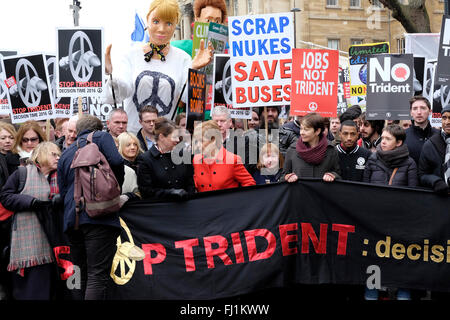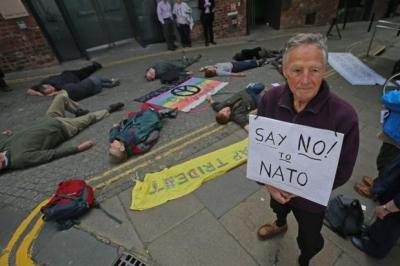
NATO Responds to Scottish Government Desire to Scrap Nuclear Weapons
George Allison / UK Defense Journal
(December 2, 2019) — Scottish First Minister Nicola Sturgeon recently called for the Trident nuclear weapon system based on the Clyde to be scrapped.
An independent Scotland would remove nuclear weapons from its soil and seek to join what the NATO Secretary General has described as “a nuclear alliance”.
When asked on The Andrew Marr Show whether the UK would still be a valued member of NATO without nuclear weapons (due to Labour and the SNP potentially looking to scrap them), NATO Secretary General Jens Stoltenberg responded :
“Britain is a highly valued member of NATO for many reasons. You spend more than 2% on defence, you provide a lot of valuable, high-end capabilities and you have shown again and again you are willing to deploy when needed.
“Part of the UK contribution to NATO is of course the UK nuclear weapons — the nuclear deterrent — which contributes to the overall nuclear deterrent of NATO, which is something that is important for NATO. NATO’s goal is a world without nuclear weapons but we have to arrive there through viable, balanced nuclear arms control and disarmament.
“The world will not be safer if NATO got rid of all its nuclear weapons while countries like Russia, China, North Korea and other countries maintain their nuclear weapons. So yes, we would like to see a world without nuclear weapons but as long as there are nuclear weapons, NATO will remain a nuclear alliance.”
In addition, GMB union have warned that removing nuclear weapons and nuclear submarines from Faslane were risking the livelihoods of 6,800 service personnel and civilian staff at the site.An estimated 5,000 extra jobs are linked to the base in the supply chain and local economy in Argyll.

asland Peace Camp protests NATO’s nuclear weapons.
NATO secretary general Jens Stoltenberg also recently confirmed that an independent Scotland would have to leave the alliance.
“If it happens, then the UK will continue as a member of NATO but a new independent state has to apply for membership and then it is up to 28 allies to decide whether we have a new member.
“All decisions in NATO are taken by consensus, so we need the consensus of all allies. By leaving the UK it will also be leaving NATO, but of course it is possible to apply for membership and then the allies would then decide whether the independent state would become a member of NATO.”
It is understood that many believe Scotland would likely face the issue of having its entry challenged by Spain which is cautious of encouraging break-away states due to the independence movement in its Catalonia region. However in light of Spain’s recent statements regarding their acceptance of Scotland’s entry to the European Union, this is unlikely to be the case.
An independent Scotland would meet most the entry requirements of the alliance and the country is strategically important however it may not be able to join for many years if approved as the entry process for the alliance is lengthy.
George has a degree in Cyber Security from Glasgow Caledonian University and has a keen interest in naval defence technology and cyber security matters.
Posted in accordance with Title 17, Section 107, US Code, for noncommercial, educational purposes.